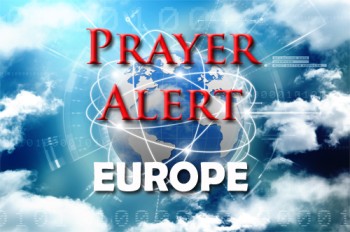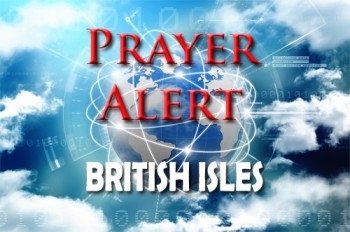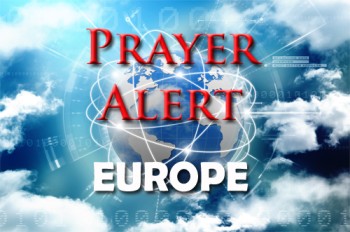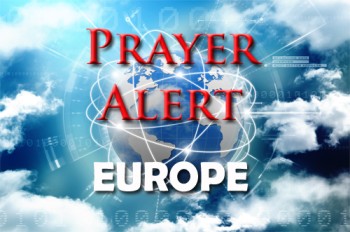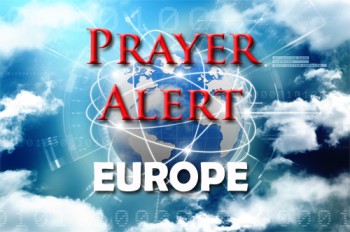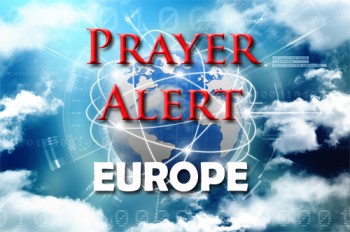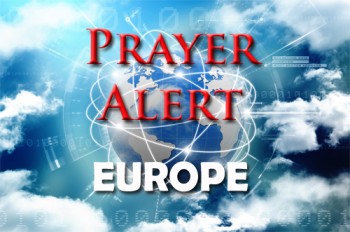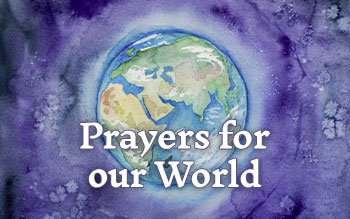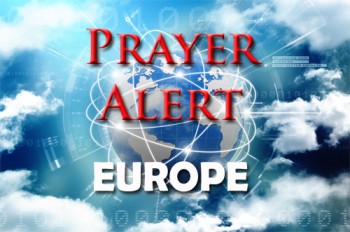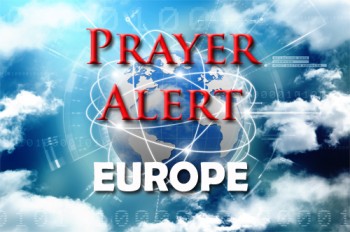Displaying items by tag: Poland
Ukraine: Refugees’ ‘bubble of safety’
Elżbieta Jarmulska, a feisty Polish entrepreneur, is the founder of the Women Take The Wheel Initiative to provide Ukrainian refugees with a ‘bubble of safety’. She says, ‘Those women have been through so much already, walking or driving their way through a war zone and now are exposed to fear and exploitation here? I have no words for what that must be like’. Elżbieta has recruited 650+ Polish ‘amazing women’, as she describes them, driving backwards and forwards as often as they can to the Polish-Ukrainian border, in order to offer refugees safe passage. They show their ID card and proof of residence to officials, before asking if anyone wanted a lift to Warsaw. The car is full in moments. Small children are given water, chocolate and motion-sickness tablets if they need them. The women are so relieved when they see they have a female driver to help them to safety.
British army engineers to help at Polish border
150 Royal Engineers will be sent to help reinforce Poland's border with Belarus. The border is an entry point to the EU, and there have been tensions there in recent weeks. A small reconnaissance team of engineers had already gone to the area to assess the situation. The engineers are not combat troops but ‘guys with diggers’ who would be dispatched ‘within days or weeks’. They will be building or making fences, roads, or checkpoint observation posts, or putting in infrastructure to help the Poles and potentially other Baltic states to secure their border. The UK defence secretary said, ‘I'm particularly worried for the women and children and the vulnerable people who are being trafficked by the Belarusians into this game they seem to be playing. It's a horrendous thing to do to force migrants to be a tool in a game to try to destabilise their neighbours’.
Polish PM holds talks in Europe on border crisis
Last weekend Polish prime minister Mateusz Morawiecki met his counterparts from Lithuania, Latvia, and Estonia, also hit by migrant pressure in recent months. During the week he has travelled to other European countries, which he did not name. Morawiecki said on Facebook that it is a ‘very serious geopolitical situation’ which requires a lot of diplomatic effort as many migrants remain in Belarus and continue attempting to enter Poland. ‘This is why I set out on a journey to other European countries, to talk about the international crisis provoked by the actions of Alexander Lukashenko. Unfortunately, there are numerous signs suggesting that this geopolitical crisis will continue for many months, even years’, Morawiecki said. Poland is pushing the migrants back to protect the border for all of Europe and has received words of support from the EU, NATO and the USA.
Belarus / Poland: border crisis
On 17 November Belarus provided temporary shelter for 1,000 freezing hungry migrants camping on its border with Poland, wanting to enter the EU. For months, thousands of men, women and children have been amassing at Belarus's western borders. Belarus has been accused of pushing migrants, mostly from Iraq, to the border to destabilise the EU. Belarus's long-time authoritarian leader, Alexander Lukashenko, has denied luring migrants to the border in revenge for EU sanctions. Iraqi Airways confirmed it would send a plane to Belarus on 18 December to take its citizens home. The EU has asked Middle Eastern countries to stop flights to Belarus; several have agreed. Poland, with EU backing, is determined not to let the migrants into the bloc and warned that the border and humanitarian crisis may go on for months. The situation will not be resolved quickly. See also
Poland: humanitarian crisis unfolding at border zone
Kasia Wappa lives by Poland’s national park where a humanitarian crisis is unfolding on a scale not seen since World War 2. She is part of a network trying to save emaciated Middle Eastern immigrants who have been emerging from the wilderness since September. Most had spent days without food or water and were suffering from hypothermia and exhaustion. Some were sick from drinking swamp water. Kasia began by donating warm clothes, and now helps rescue parties retrieve lost and starving people from the woods. But the flow of migrants has increased, and she warns that many probably never make it. Ten deaths have been confirmed, and they have rescued many on the verge of dying. The Polish government has built a three-kilometre deep security cordon the length of its Belarus border to curb illegal immigration. All reporters are banned, creating a media blackout to hide the scale of the crisis. Rescuers now behave like insurgents, operating at night and evading police patrols.
Moldova: severe energy crisis
Moldova has made history by buying gas from a source that was not Russia's Gazprom. The one million cubic metres came from Poland's PGNiG. Moldova will need much larger volumes if Russia cuts supplies, as it has threatened to do if they don’t agree to increased costs in a new contract. In the absence of a new deal Russia reduced supplies, prompting Moldova to declare a thirty-day state of emergency. Gazprom accused Moldova of ‘provoking a crisis’ and demanded repayment of a $709m (£514m) debt, which Moldova disputes. Officials say they would like to sign a new contract with Gazprom, but only if the terms are favourable. Negotiations continue. Moldova said PGNiG’s shipment was to test the ability of imported gas from alternative sources, and PGNiG was one of seven offers they had received. Critics accuse the Kremlin of hiking gas prices to punish Moldova for electing a pro-European president, Maia Sandu.
Poland: child sex abuse referred to Vatican
Archbishop Wojciech Polak has called on the Church hierarchy to launch proceedings following the release of a documentary telling the story of two brothers who sought to confront the priest who allegedly abused them as children. The Vatican is expected to assign an investigator to the case. The film, ‘Hide and Seek’, has been viewed over 1.9 million times on YouTube and is the second documentary on the subject by Marek and Tomasz Sekielski. Poland plans to double jail terms for paedophiles, and the Pope has made it mandatory for clergy to report abuse after victims failed to bring to account those in the Church who were responsible for covering up their abuse. A senior bishop allegedly knew about the allegations for years without taking any action.
Poland: U.S. Agrees To Station 'About 1,000' More Military Personnel
The United States has agreed to station "about 1,000" more military personnel in Poland as the government of the East European country seeks to counter what it perceives as a growing Russian threat.
However, the joint U.S.-Poland declaration signed by President Donald Trump on June 12 stopped short of calling it a permanent presence, potentially easing Kremlin concerns about a larger U.S. military presence near its western border.
Trump earlier in the day said the increase in U.S. forces in Poland could come at the expense of Germany -- whom he criticized for underspending on NATO defense and overspending on Russian gas.
"We would be taking them out of Germany or we would be moving them from another location. It would be no additional troops to Europe," Trump said shortly before reaching the agreement.
The United States has 52,000 troops based in Germany, Trump said. The Pentagon told RFE/RL that the sourcing of the military personnel and other details of the agreement "are still being worked out."
About 4,500 U.S. troops have been stationed in Poland on a rotational basis for the past few years in response to Russia's 2014 annexation of Crimea and Moscow's continued military support for separatists in eastern Ukraine.
NATO separately placed about 1,200 troops in Poland in 2017 as part of its efforts to beef up deterrence against Russia in Eastern Europe and recently agreed to invest $269 million to support U.S. forces in the country.
The 1997 NATO-Russia Founding Act pledges the alliance to carry out its collective defense without the "additional permanent stationing of substantial combat forces." However, the pledge only applied to the "current and foreseeable security environment" at the time.
NATO Secretary-General Jens Stoltenberg said the June 12 U.S.-Polish agreement was "fully in line with NATO's international commitments."
"When the world changes, we have to adapt to make sure that we can continue to protect all allies," Stoltenberg said in the statement, possibly hinting at Russia's actions in Ukraine.
Poland last year proposed spending as much as $2 billion to host a permanent U.S. armored division, which consists of between 10,000 and 15,000 troops, to strengthen its defense against Russia.
Russia, which occupied part of Poland under the tsars, "is again showing its imperial face" by its actions in Ukraine, Polish President Andrzej Duda said at the joint press conference with Trump.
According to the agreement, the U.S. military will expand its "enduring presence" in Poland by about 1,000 personnel "in the near-term." Poland will finance that expanded presence as well as additional military infrastructure, including a U.S. divisional headquarters.
Russia could seek to build up its military presence in the exclave of Kaliningrad in response, former U.S. Army Europe commander Lieutenant General Ben Hodges told RFE/RL. He said the Kremlin could also put more pressure on Belarus to allow its troops into that country. Both Kaliningrad and Belarus border Poland.
Though the U.S. agreement fell far short of Poland's initial request, it is something that "could be scaled" up in the future should developments in Eastern Europe demand it, Eugene Chausovsky, a Eurasia analyst at Stratfor, told RFE/RL.
"This is something that the Polish government can claim as a victory of sorts," he said of the deal.
Poland helped win over Trump's support for the increased military presence by agreeing to purchase U.S. fighter jets as well as liquefied natural gas, Chausovsky said.
Trump confirmed during the joint press conference that Poland will buy nearly three dozen F-35 fighter jets -- worth in excess of $2.5 billion -- as well as an additional $8 billion of liquefied natural gas.
Poland is seeking to wean itself off Russian energy, which accounts for nearly 70 percent of its gas imports. Duda will travel to Houston with Energy Secretary Rick Perry to meet executives of U.S. energy companies during his six-day visit to the United States.
Washington and Warsaw are seeking to halt Russia's plans to build an $11 billion gas pipeline to Germany. The pipeline would make Germany a "hostage of Russia" while also supporting the Russian economy, Trump said.
"We are protecting Germany from Russia, and Russia is getting billions and billions of dollars of money from Germany," Trump said ahead of his meeting with Duda.
He highlighted that Germany was only spending about 1 percent of gross domestic product on defense, below the 2 percent threshold set by NATO members in 2014.
Hodges said moving troops from Germany to Poland would be taken as a sign that the United States was punishing Berlin for its failure to meet defense spending limits.
However, he said, maligning Berlin was not in Washington's interest.
"We have to make sure that we treat Germany as our most important ally. Spending is such a small component of the relationship. You can't put a price tag on" all that Germany does for the United States, said Hodges, who is now with the Center for European Policy Analysis.
Article by Todd Prince
Poland: Just Don't Tell Anyone
A survey showed that Poland's pro-EU opposition has a ten-point lead over the ruling nationalists ahead of European Parliament elections - a sharp turnaround that some analysts linked to a film about sexual abuse scandals in the Catholic Church. The documentary Just Don't Tell Anyone, which shows victims of child abuse confronting priests who had sexually abused them, has shocked Poles. The powerful Catholic Church has close ties with the governing Law and Justice party (PiS). The documentary has been viewed more than 18 million times on YouTube since it was released on 11 May. PiS has responded to public outcry by announcing tougher penalties for child abuse, but it has also stressed that the instances of abuse by priests should not be used as a reason to attack the Catholic Church. PiS sees Catholicism as a key element of Poles' national identity. Some say that the church is too powerful.
Poland: Harry Potter books burnt
Priests at a Catholic parish in northern Poland have burnt books, including the Harry Potter series, and other items that their owners said had evil forces. Images from the burning at Gdansk’s Mother of Church parish on Sunday were posted on Facebook by a Catholic foundation that uses unconventional ways of religious work. In the pictures, flames are consuming an African wooden mask, figurines of elephants, and books on personality and magic, as well as those by J K Rowling, all brought in by parishioners. A priest and altar boys watched the book-burning. The foundation said the book-burning was intended to alert parishioners to bad influences which it says come from magic and the occult. Comments under the post condemned the action, recalling that it also happened in Nazi Germany before World War II.
